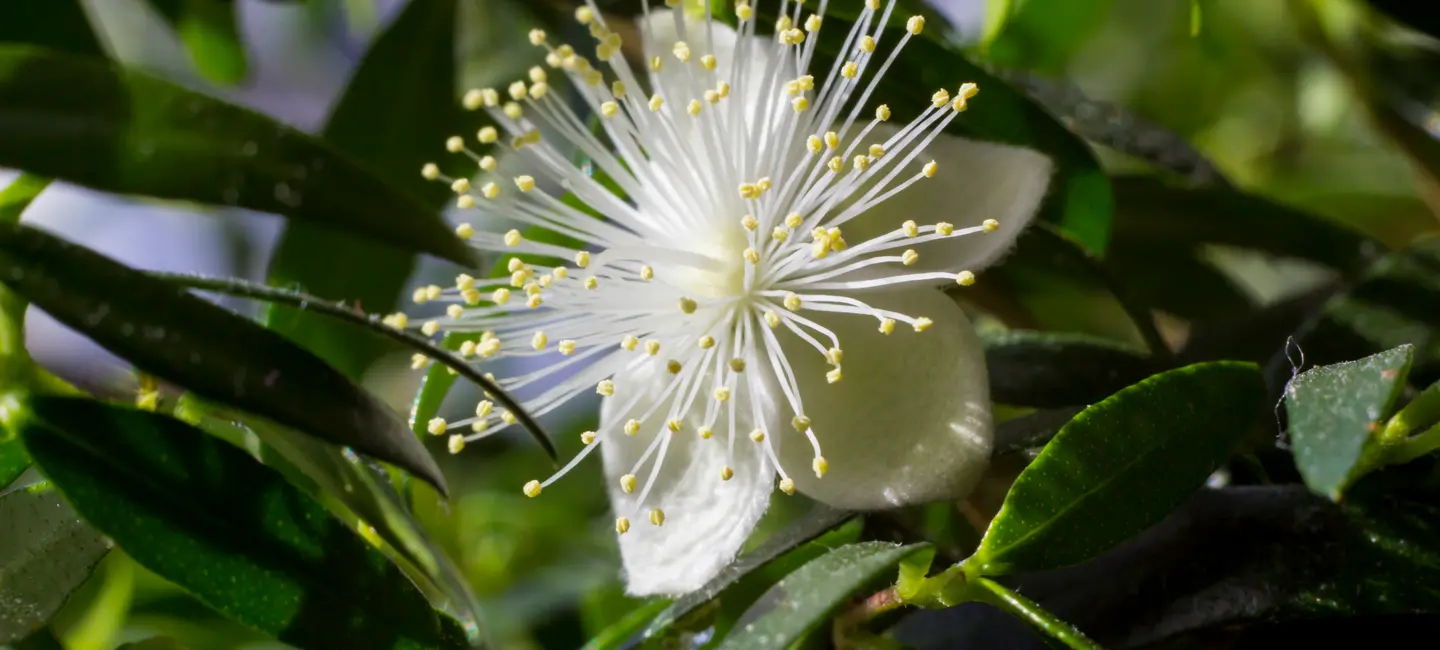
Myrtle (Myrtus communis) is a shrub commonly found in Iran. The fruit, leaves, and branches are used in traditional Persian medicine.
Myrtle contains chemicals that might help fight against fungus and bacteria, and reduce swelling.
People use myrtle for acne, canker sores, abnormally heavy bleeding during menstrual periods, persistent heartburn, warts, and many other conditions, but there is no good scientific evidence to support these uses.
Don't confuse myrtle with periwinkle, which is sometimes called myrtle. These are not the same.
Is It Effective?
There is interest in using myrtle for a number of purposes, but there isn't enough reliable information to say whether it might be helpful.
Is it Safe?
When taken by mouth: Myrtle berry is possibly safe when used short-term. But undiluted myrtle leaf oil is likely unsafe. Myrtle leaf contains a chemical that can cause serious breathing problems and other side effects. There isn't enough reliable information available to know if myrtle leaf, myrtle branch, or myrtle berry extract are safe or what the side effects might be.
When applied to the skin: Diluted myrtle leaf extract is possibly safe. Side effects might include skin irritation and dryness.
When applied to the vagina: Diluted myrtle leaf extract is possibly safe when used in vaginal suppositories, short-term.
Special Precautions & Warnings:
Pregnancy and breast-feeding: Myrtle is likely unsafe when taken by mouth while pregnant or breast-feeding. Avoid use.
Children: Myrtle leaf oil is likely unsafe when taken by mouth in children. Even slight facial contact with the oil can cause breathing problems and death in infants and small children. There isn't enough information available to know if other forms of myrtle are safe to take by mouth or apply to the skin in children.
It is not known if Myrtle interacts with any medicines. Before taking Myrtle, talk with your healthcare professional if you take any medications.
There are no known interactions with herbs and supplements.
There are no known interactions with foods.
There isn't enough reliable information to know what an appropriate dose of myrtle might be. Keep in mind that natural products are not always necessarily safe and dosages can be important. Be sure to follow relevant directions on product labels and consult a healthcare professional before using.
Aas, A'as, Arrayán, Common Myrtle, Habbal-Aas, Habb-Ul-Aas, Herbe du Lagui, Mirto, Mourd, Murta, Myrte, Myrte Commun, Myrti Aetheroleum, Myrti Folium, Myrtus communis, Nerte, Roman Myrtle, True Myrtle.
Information on this website is for informational use only and is not intended to replace professional medical advice, diagnosis, or treatment. While evidence-based, it is not guaranteed to be error-free and is not intended to meet any particular user’s needs or requirements or to cover all possible uses, safety concerns, interactions, outcomes, or adverse effects. Always check with your doctor or other medical professional before making healthcare decisions (including taking any medication) and do not delay or disregard seeking medical advice or treatment based on any information displayed on this website.
© TRC Healthcare 2024. All rights reserved. Use and/or distribution is permitted only pursuant to a valid license or other permission from TRC Healthcare.
